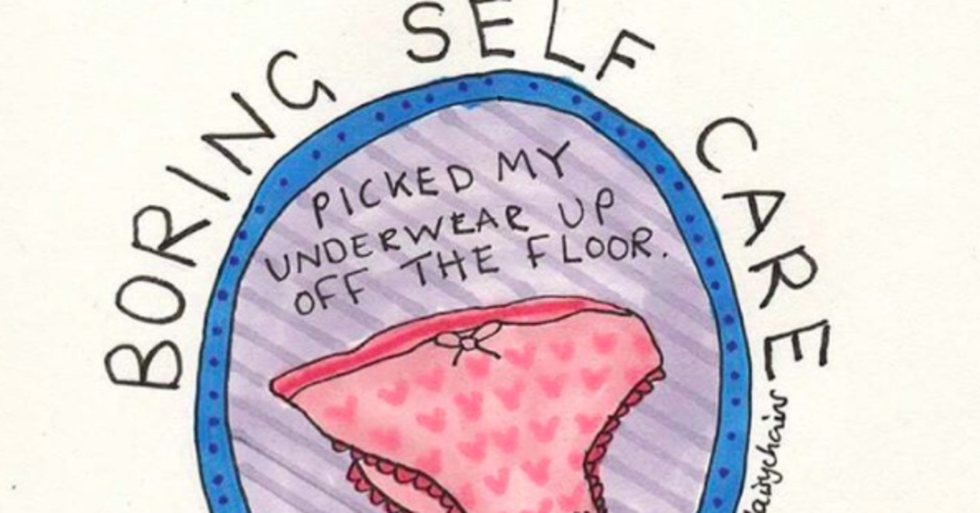The term self-care can sometimes be misconstrued. Often, self-care is an idea that is perceived as a way to relax oneself. Perhaps this is true, but it's extremely important to recognize and understand that not all acts of self-care include relaxing activities, like bubble baths or massages. Self-care can include tasking activities, like meeting with your therapist once a week (or as often as you feel necessary) in order to ensure the stability of a positive mentality or activities that might not seem like a big deal, like taking a daily prescription for example. Instagram user Hannah Daisy highlights these not-so-glamorous tasks and tags them with #boringselfcare, which has gotten some major traction on the social media app thus far.
Hannah creates graphics that usually contain some kind of phrase like "asked for help" or "let myself cry" in accompaniment to an illustrated image. With every post, Hannah includes a descriptive caption that almost always ends with #boringselfcare. The reason why these self-care posts are considered to be "boring" is that of the fact that most of them are everyday tasks that a person could easily complete. However, these tasks are extremely important, and to someone struggling to consistently be in a healthy mental state, these tasks can seem nearly impossible.
In an interview with the online publication, The Mighty, Hannah states, "with chronic illness or mental health problems, every single task can be a chore and uses up energy". As a society, I feel that we fail to recognize this fact. Instead of becoming frustrated with an individual because they can't find the motivation to complete something as simple as washing the dishes or picking up the phone and calling Domino's to order a pizza, we should be understanding and recognize that some activities that we personally find simple may be a whole new challenge to a different person.
Daisy goes on to say that she really encourages others to recognize the importance of completing small(ish) tasks and realize that the completion of these tasks are achievements and are something kind to do for yourself. In order to become a society that ends the stigmas against mental health diseases, we must be willing to accept all individuals, no matter what kind of challenges they might face, and encourage them to be the best possible versions of themselves that they can possibly be. Through this encouragement, simple tasks will become easier and easier, and society will be that much closer to being a loving environment for every individual.






 The minimum wage is not a living wage.
StableDiffusion
The minimum wage is not a living wage.
StableDiffusion
 influential nations
StableDiffusion
influential nations
StableDiffusion












